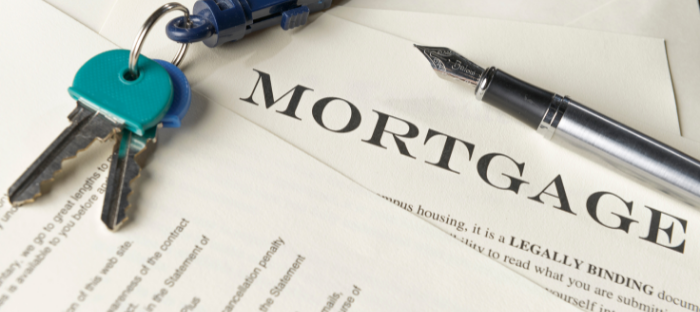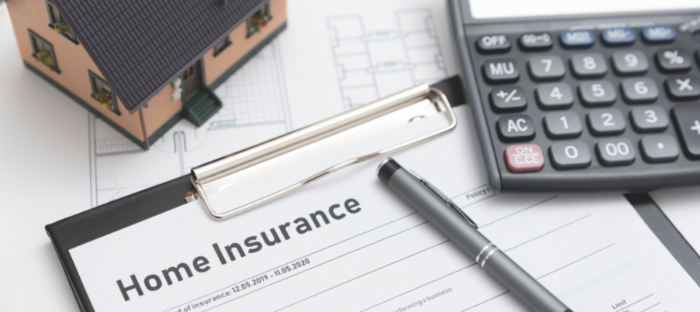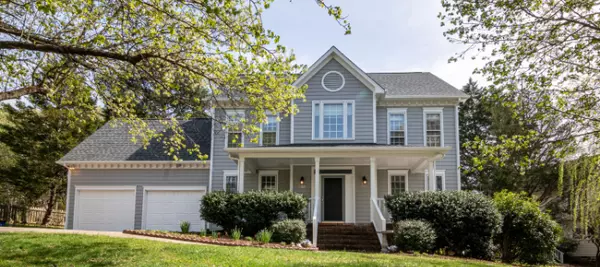Home Equity, Mortgage, and Other Important Financial Terms
Home Equity, Mortgage, and Other Important Financial Terms.

When you're buying a home, you need to consider a lot of different names for a variety of fees. The 'typical cost' of a house is adding up things like private mortgage insurance, legal fees, the selling price, common fees, and fees related to your local government.
Moving expenses won't be a big piece of the pie when you factor in property tax, land transfer tax, and the cost of remedying a migraine or two.
What is home equity?
It is the difference between your home's current market value and the total amount you still owe on your mortgage.
What can affect home equity?
How you plan to use your home. If you plan to live in it for a long time, the equity will be higher if the market value stays stable or decreases temporarily. However, if you want to sell your home in the near future, high market prices would result in higher equity.
The amount you still owe on your mortgage. Even if market values remain stable, a greater amount will result in a lower equity percentage.
Your regular housing expenses and taxes compared with others in your area. If you have a fixed interest rate or low monthly mortgage payment, this will increase the equity amount when compared to other homeowners who have higher regular expenses due to fluctuating interest rates or greater monthly payment amounts.
Your home's neighbourhood value. Higher rates of appreciation in your area will result in higher equity values, while lower rates of appreciation will result in lower equity values.
Home equity can be an important factor when considering a home purchase or mortgage refinance. It is also used as collateral for various loans. The higher the equity, the more money you will have available to you.
What is a home equity line of credit?
A home equity line of credit or HELOC is a loan that allows you to borrow money up to the limit you have established. It works like a credit card, but it uses your home's value as collateral instead of an actual piece of plastic. Even though it may be difficult to qualify for the entire amount originally, you can draw money out of your line of credit through various transactions. You can even make partial payments if you want to, but it is important to know that the interest on the amount you have not yet paid back will continue to accumulate until your entire balance has been paid off.
What is a mortgage?

A mortgage is a loan that uses your home as collateral. This means that if you stop making payments on the loan, the bank can take your home away from you. The mortgage will give you the money you need to purchase your home, and you will then pay back the loan over time. Be sure to take care of all of your mortgage documents so you have a record of your originally agreed mortgage rates.
What are some important terms to know about mortgages?
Down payment.
This is the amount of money you need to put towards your home before a lender will give you a mortgage. There are many combinations in which a down payment can be paid, such as cash at closing or by making monthly payments over time until all funds have been satisfied. Before you even get to that point, you and your real estate agent should have concluded a positive home inspection.
It's usually a fraction of the home's purchase price and part of your mortgage loan. Thinking through a reasonable minimum down payment is one of the biggest indicators of whether or not you can afford a home.
Interest rate.
This is the price you pay for borrowing money. It is expressed as a percentage rate, and it determines the amount of interest you will owe on the balance every month until the loan has been paid in full or in structures like monthly installments.
You should expect to pay interest unless you can buy a home outright without a home loan, and that interest rate is based on a variety of factors like your credit score.
Loan estimate
When you submit a mortgage application, your lender is required by law to give you a Loan Estimate (LE) within a few days based on the loan estimate form you filled out. If you have questions or something doesn't add up in your LE, ask your lender or attorney right away.
You want to avoid surprises. Before closing your loan, you'll receive your final Closing Disclosure listing your closing costs. Be sure to compare your Closing Disclosure to the LE you received when you applied for your loan.
Frequency of payments.
This term refers to how often you make your payment each month, week, year, etc. Monthly payments are the most common, but biweekly or weekly payments can help you save money on interest in the long run.
Term of the loan.
This is how long you have to pay back your loan. The longer the term, the smaller your monthly payments will be, but you will end up paying more interest over the life of the loan. You can negotiate this with your mortgage provider.
Amortization.
This is the amount of time it will take you to pay off your mortgage in full. It is usually expressed in years or months. It is often referred to as your amortization period.
Mortgage insurance.
This is a type of insurance that protects the lender in case you default on your loan. You will be required to pay mortgage insurance if you have less than 20% down payment. Mortgage insurance premiums are usually added to the monthly cost of the loan. Part of the insurance policy is making sure that your first mortgage payment and fulfill your financial obligations.
What are some other mortgage accounts?
There are many different types of mortgages available depending on your individual needs. What different people deal with when talking about regular mortgage payments can be quite different from one person to the next.
They range from traditional mortgages to adjustable-rate mortgages, discounted variable-rate mortgages, interest-only mortgages and much more. These are just a few of the most common types of mortgage accounts available in today's market.
What is an adjustable-rate mortgage?
An adjustable-rate mortgage or ARM allows you to borrow money at a certain interest rate during the fixed-rate period. Once this period is over, your interest will begin to change depending on current market conditions. If interest rates fall, then you can end up paying more for your loan than if they had stayed the same or increased slightly.
If interest rates rise, then you will be able to pay less for your loan than if they had stayed the same or decreased slightly.
What is a fixed-rate mortgage?
A fixed-rate mortgage is a mortgage in which the interest rate remains the same for the entire length of the loan. This type of mortgage can be helpful if you know you will be in the same home for a certain number of years, as it guarantees that your monthly payments will not change.
What is a discounted variable-rate mortgage?
A discounted variable-rate mortgage is a mortgage in which the interest rate is lower than the lender's standard variable-rate product. This type of mortgage usually has a lower interest rate than a traditional mortgage, but there is a catch--the interest rate can go up at any time, which means your monthly payments could increase as well.
What is an interest-only mortgage?
An interest-only mortgage is a mortgage in which you only pay the interest on the loan for a set period. This type of mortgage can be helpful if you are short on cash and need to buy a home right away, as it allows you to spread the interest payments out over a longer period. However, you will still need to pay back the mortgage principal amount in the future.
What should I do if I'm not sure which type of mortgage is right for me?
If you're not sure which type of mortgage is right for you, it's best to consult with a qualified mortgage lender. They will be able to help you figure out which mortgage account is the best fit for your current financial situation and long-term goals.
Homeowners insurance terms.

What is homeowners insurance?
Homeowners insurance is a type of property insurance that protects against losses to your home. This protection could include damage caused by fire, smoke, vandalism or even certain disasters.
There are three types of homeowners' insurance policies available through most companies:
Basic homeowners insurance
This policy covers the structure and outside debris, including water damage, caused by fire, windstorm, hail or even an explosion. Generally, this type of damage is not covered by regular homeowners' insurance.
Broad-form homeowners insurance
This policy covers the structure and outside debris--including water damage--caused by any disaster covered under your basic policy (fire, flood, etc.) as well as common catastrophes such as hurricanes and earthquakes.
Special-form homeowners insurance
This policy only covers the structure itself and does not cover incidents such as earth movement or water damage. This type of policy is more expensive than a basic or broad form, but it's also less common. If you're looking forward to building your house from scratch, then this might be the right policy for you.
What does homeowners insurance not cover?
There are certain things that homeowners insurance will not cover, such as damage caused by earth movement or water.
For example, you may not be covered if your swimming pool causes severe damage to your home or if a burst pipe causes water to run through the floors.
You also will not be covered for any incidents that are deemed "negligent"--for example, if you go on vacation and leave the freezer open, which results in the refrigerator flooding.
What is the difference between actual cash value and replacement cost?
The difference between actual cash value and replacement cost is fairly simple:
Actual cash value pays you what your home is worth at the time of the loss, while replacement cost pays you what it would cost to rebuild your home.
For example, if your home was destroyed by a fire and it was valued at $100,000 when the policy was written, the actual cash value would pay you $100,000.
On the other hand, the replacement cost would pay you what it would cost to rebuild your home--which in this case might be around $150,000.
Property taxes and other fees
What are property taxes?
Property taxes are a type of tax that is levied by the government on the value of a property. This type of tax is generally paid by the property owner and is used to fund local services, such as schools and libraries.
What are homeowners association fees?
Homeowners Association (HOA) fees are monthly or yearly payments that typically allow you to live in a community. These communities may range from condominiums, townhomes and planned developments to golf courses. Depending on your home's location, you may be required to pay HOA fees.
What are transfer fees?
Transfer fees are a type of fee that is charged when property changes hands. This could be when a property is sold, refinanced or even gifted. The home buyer is generally the one to cover closing costs and it goes to the person who initiated the transfer.
What are closing costs?
Closing costs are a type of fee that is paid when a real estate transaction is completed. This could be when you buy a property, sell a property or even refinance. The cost covers the various services that are provided to complete the transaction, such as title searches and appraisals.
Other important financial terms in real estate
Escrow fee
An escrow fee is paid to the person, working for an escrow company, who acts as an "escrow agent." This type of fee is generally used throughout the process to pay for specific services.
An escrow agent is a third party who is responsible for handling the money and documents related to a real estate transaction. This could include receiving, holding and disbursing the funds as well as issuing title insurance.
Transfer tax
Transfer taxes are generally paid on the transfer of property. The property transfer tax can be paid by the buyer or seller, depending on the location. It is usually only applicable when there are more than two parties involved in the transaction--in instances where there are fewer participants, it is not traditionally required.
Origination fee
An origination fee is a type of fee that is charged by a lender when you take out a loan. This fee covers the administrative costs associated with originating the loan.
Appraisal fees
An appraisal fee is paid to the person who conducts an appraisal on a property. This fee is generally covered by the buyer and it covers the cost of hiring a professional appraiser. This is often confused with a home inspection fee and though they are similar, the two processes are separate.
There are more, but you should discuss them with your realtor.
Real estate agents have tips and tricks to avoid or minimize the payments that you need to pay in the end. At the very least, they can help you make sense of the process and the whole glossary of terms you'll be wading through on your way to the front door of your dream home.
View All Homes For Sale in Greater Vancouver >>>
About Search Home Listings
SearchHomeListings.ca has simplified the home buying and selling process by giving you superior tools with up-to-the-minute information including active homes for sale, sold homes, market reports, and a home valuation tool! We have a team of success managers on standby to support you with setting up your saved home search and agents ready to take you out on a tour. Tap into our industry experts from inspectors, to contractors to interior designers to provide you with the best prices and service possible. Everyone attached to our website has been rigorously vetted and is made up of caring, knowledgeable professionals that work tirelessly to help you to make your home buying experience as stress-free as possible. Contact us today to see how we can help!
Sites We Follow
Categories
Recent Posts










